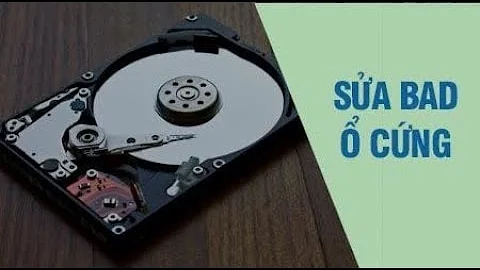My SSD now has 226 bad sectors. Is that significant?
Solution 1
It eventuated that that Samsung 840 Pro SSD had a catastrophic failure later in 2014. It was replaced under warranty with the Samsung 850 Pro, which has now been running successfully since then, and still does not report any bad sectors. I'm pleased about that, because I thought maybe it was an "undocumented feature" of SSDs.
Solution 2
The smart data of our SSD says that you used the SSD for 1331 hours and your SSD has suffered 33308592070*512/1024^4=15,5 TiB writes. That means ca. 12 GiB writes per power on hours on your SSD. That is kinda lot for a typical consumer SSD usage. What do you use the SSD for?
You are still way below the write cycle limit of your SSD, which is an MLC based one, so should tolerate ca. 3000 write cycles, which would mean ca. 256GB*3000=768 TB writes. So I would say you are safe.
But your SMART data shows that now you have already 238 reallocated (failed) sectors. That number is still very low compared to the few hundred million sectors on your drive, but for me it is surprising that after only 60-70 write cycles your SSD has failing blocks. Do you have some spare space on your SSD? The SSDs needs some spare space to be able to efficiently manage the wear on the drive. If the drive is almost full it wears faster because of the increased writes of the wear leveling algorithm.
Here is a graph showing a 840 PRO 256 GB SSD under write test. It has still zero, or very close to zero reallocated sectors after 300 TB writes. You have more than 200 after less than 20 TB.
You are using the latest firmware of the drive. I don't want to worry you but I think you should contact Samsung with that SMART output, and ask about their opinion. I think your drive has some kind of problem.
UPDATE:
After Samsung's response - who basically said everything is fine - I would say that as long as you don't encounter data loss, (that is as long as the badblocks discovered during a write operation) I think you shouldn't worry then.
You can see the badblock count in the Runtime_bad_block line (238, the Raw value) that is the sum of the Program_Fail_Cnt_Total (238, which is the failed write operations) the Erase_Fail_Count_Total (0, which is the failed erase operations) and the failed read operations. So the failed read operations on your drive at the time the smart output was generated is 238-238-0=0, so you didn't have any failed read, you don't have any data loss.
If your drive starts to encounter failed reads too in the near future (that means the Runtime_bad_block will not equal Program_Fail_Cnt_Total + Erase_Fail_Count_Total), potential data loss, I would recontact Samsung. Until that time just enjoy your SSD.
Related videos on Youtube
el_gallo_azul
Updated on September 18, 2022Comments
-
el_gallo_azul over 1 year
Ubuntu 13.04. The number of bad sectors on my SSD has steadily increased until 226 bad sectors today.
The thing is, I don't know whether 226 bad sectors is 0.0001% of the SSD, 1% of the SSD, or 99% of the SSD.
I haven't found anything on the internet this morning to answer this question.
The Disks utility doesn't tell me either, and I can't find the information in SMART Data.
sudo smartctl -a /dev/sdashows this:smartctl 5.43 2012-06-30 r3573 [x86_64-linux-3.8.0-31-generic] (local build) Copyright (C) 2002-12 by Bruce Allen, http://smartmontools.sourceforge.net === START OF INFORMATION SECTION === Device Model: Samsung SSD 840 PRO Series Serial Number: S1ATNEAD645474H LU WWN Device Id: 5 002538 5503c15c0 Firmware Version: DXM05B0Q User Capacity: 256,060,514,304 bytes [256 GB] Sector Size: 512 bytes logical/physical Device is: Not in smartctl database [for details use: -P showall] ATA Version is: 8 ATA Standard is: ATA-8-ACS revision 4c Local Time is: Fri Jan 24 20:37:08 2014 CST SMART support is: Available - device has SMART capability. SMART support is: Enabled === START OF READ SMART DATA SECTION === SMART overall-health self-assessment test result: PASSED General SMART Values: Offline data collection status: (0x00) Offline data collection activity was never started. Auto Offline Data Collection: Disabled. Self-test execution status: ( 0) The previous self-test routine completed without error or no self-test has ever been run. Total time to complete Offline data collection: (53956) seconds. Offline data collection capabilities: (0x53) SMART execute Offline immediate. Auto Offline data collection on/off support. Suspend Offline collection upon new command. No Offline surface scan supported. Self-test supported. No Conveyance Self-test supported. Selective Self-test supported. SMART capabilities: (0x0003) Saves SMART data before entering power-saving mode. Supports SMART auto save timer. Error logging capability: (0x01) Error logging supported. General Purpose Logging supported. Short self-test routine recommended polling time: ( 2) minutes. Extended self-test routine recommended polling time: ( 20) minutes. SCT capabilities: (0x003d) SCT Status supported. SCT Error Recovery Control supported. SCT Feature Control supported. SCT Data Table supported. SMART Attributes Data Structure revision number: 1 Vendor Specific SMART Attributes with Thresholds: ID# ATTRIBUTE_NAME FLAG VALUE WORST THRESH TYPE UPDATED WHEN_FAILED RAW_VALUE 5 Reallocated_Sector_Ct 0x0033 097 097 010 Pre-fail Always - 238 9 Power_On_Hours 0x0032 099 099 000 Old_age Always - 1331 12 Power_Cycle_Count 0x0032 099 099 000 Old_age Always - 341 177 Wear_Leveling_Count 0x0013 097 097 000 Pre-fail Always - 75 179 Used_Rsvd_Blk_Cnt_Tot 0x0013 097 097 010 Pre-fail Always - 238 181 Program_Fail_Cnt_Total 0x0032 097 097 010 Old_age Always - 238 182 Erase_Fail_Count_Total 0x0032 100 100 010 Old_age Always - 0 183 Runtime_Bad_Block 0x0013 097 097 010 Pre-fail Always - 238 187 Reported_Uncorrect 0x0032 100 100 000 Old_age Always - 0 190 Airflow_Temperature_Cel 0x0032 067 062 000 Old_age Always - 33 195 Hardware_ECC_Recovered 0x001a 200 200 000 Old_age Always - 0 199 UDMA_CRC_Error_Count 0x003e 099 099 000 Old_age Always - 1 235 Unknown_Attribute 0x0012 099 099 000 Old_age Always - 128 241 Total_LBAs_Written 0x0032 099 099 000 Old_age Always - 33308592070 SMART Error Log Version: 1 No Errors Logged SMART Self-test log structure revision number 1 No self-tests have been logged. [To run self-tests, use: smartctl -t] SMART Selective self-test log data structure revision number 1 SPAN MIN_LBA MAX_LBA CURRENT_TEST_STATUS 1 0 0 Not_testing 2 0 0 Not_testing 3 0 0 Not_testing 4 0 0 Not_testing 5 0 0 Not_testing 255 0 65535 Read_scanning was never started Selective self-test flags (0x0): After scanning selected spans, do NOT read-scan remainder of disk. If Selective self-test is pending on power-up, resume after 0 minute delay.-
 mcantsin about 10 yearsDid you check this? Try
mcantsin about 10 yearsDid you check this? Trysudo badblocks -v /dev/sdain the command line -
el_gallo_azul about 10 yearsDisks utility reports 227 bad sectors this afternoon (after about 8 hours since I posted this question), and the accompanying SMART Data says
183 runtime-bad-block-total 227 OK. Knowing that, it's not so bad since 227/250059095=0.000000908 | In reply to the question from @mcantsin:sudo badblocks -v /dev/sdagivesChecking blocks 0 to 250059095 Checking for bad blocks (read-only test): done Pass completed, 0 bad blocks found. (0/0/0 errors)which hopefully is a good thing. -
falconer about 10 years@user91583 Please add the output of
sudo smartctl -a /dev/sdato your question. (Or if your SSD is not/dev/sdathen change that command accordingly.) -
falconer about 10 years@el_gallo_azul Then first install it by running
sudo apt-get install smartmontools. -
el_gallo_azul about 10 years@falconer
sudo smartctl -a /dev/sdanow gives pastebin.com/vGrQMz1T (I hope this link works for you. Let me know if it doesn't). -
 Jason C almost 10 yearsI know this was a while ago, but just out of curiosity; how did you set up that drive to begin with? Was it cloned from another drive? Also, what filesystem(s) are you using?
Jason C almost 10 yearsI know this was a while ago, but just out of curiosity; how did you set up that drive to begin with? Was it cloned from another drive? Also, what filesystem(s) are you using? -
el_gallo_azul almost 10 yearsI bought the computer with Ubuntu 13.04 preloaded onto the SSD, and also with an internal HDD. I started this post when I was still using Ubuntu 13.04. I don't know how Ubuntu 13.04 was installed by the vendor. Since then: my motherboard failed, it was repaired, I updated to Ubuntu 14.04, I ended up with a lot of problems, I did a clean reinstallation from scratch of Ubuntu 14.04, got everything running again, and since that date, according to the Disks utility, the number of bad blocks has not increased from 302. The SSD and the HDD use Ext4 filesystem.
-
kagali-san over 9 yearsI wonder if it's much relevant, but I just had to purge 1024 512-byte sectors with hdparm (--write-sector) from my TOSHIBA THNSNH256GMCT. Probably will demand explanations on SU later :)
-
el_gallo_azul over 9 yearsThanks. It's no longer relevant to me. After my motherboard failure in February 2014, I had installed Ubuntu 14.04 and things were going OK. But then I had a sudden, catastrophic SSD failure in September 2014. The failed Samsung 840Pro SSD was replaced under warranty with a Samsung 850Pro SSD, and I successfully reduced the number of daily write cycles to the SSD. So far, so good.
-
-
el_gallo_azul about 10 yearsI use BOINC and I also let the SkyNet Java client run in multiple instances in the background. Yes I let it do very much writing in this process, and I am trying to find a way to get both of these to use the HDD instead of the SSD. On the spare space matter, my SSD is 25% used, and I will limit its use to 70% if I can - so far, so good. That's interesting about the performance of my SSD against Samsung benchmarks. I will follow that one up if I am able.
-
falconer about 10 years@el_gallo_azul I found an updated version of that test which I linked in my answer, here it is. It says explicitly the numbers after 500 TB: The 840 Pro, which has recorded only two reallocated sectors and no unrecoverable errors, has the same "good" health rating. So after 500 TB writes the same model as yours had only 2 reallocated sectors, you have more than a hundred times of that after less than 20TB. I would definitely send an email to Samsung with your SMART data and ask their opinion. It won't hurt.
-
el_gallo_azul about 10 yearsI just sent the information via webform to Samsung. I intend to post a summary of the Samsung response here if I receive one. Thanks for your help.
-
el_gallo_azul about 10 yearsFirst response from Samsung on 29.01.2014: "You want to know why would you have many times more reallocated sectors in your Samsung 256GB SSD PRO 840 Series. Please be advised that we forwarded this concern to the relevant department and we will contact you once update becomes available."
-
falconer about 10 years@el_gallo_azul Thanks for keeping us updated. I'm interested in Samsung's response.
-
el_gallo_azul about 10 yearsResponse from Samsung received today 31.01.2014: "This is in relation to your email on 28th January 2014 regarding your enquiry on our Samsung Solid State Drives (SSD). I have received the feedback from our Level 2 support and he advised that each models results will vary depending on the condition they are to be used in and for period of time they are used. Those results that you see are essentially used in a control environment not as everyday use. We can''t say that every single SSD will have the same results so it may not have the same reallocated sectors as the one before."
-
el_gallo_azul about 10 yearsSo essentially I interpret their response as "That's acceptable". I'll continue to find and apply ways to reduce the number of write cycles.
-
falconer about 10 years@el_gallo_azul Not the response what I expected, but it looks like Samsung thinks it is fine (and they must know better then me :D ).
-
el_gallo_azul about 10 yearsUp to 296 bad sectors today according to the Disks utility. I have 5 BOINC tasks left with a couple of days left to go. Once they finish, I'll move the BOINC working directory from the SSD to the HDD and (hopefully) that will sort most of the problem out.
-
el_gallo_azul about 10 yearsI was over 300 bad sectors yesterday. My computer then bit the dust yesterday, so I can't do anything about it until the thing is up and running again. Shame. I have to use my previous old clanger in the meantime - lucky I still have it.




